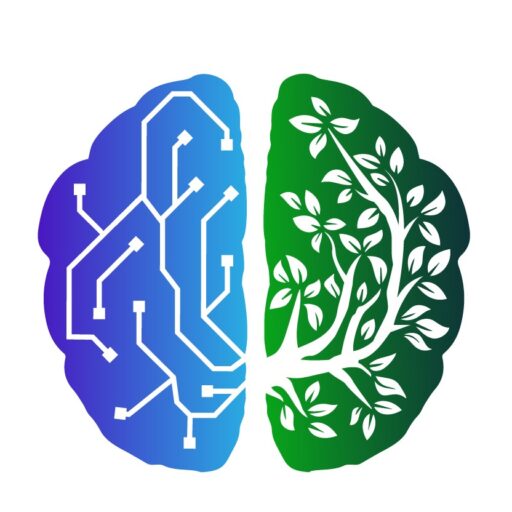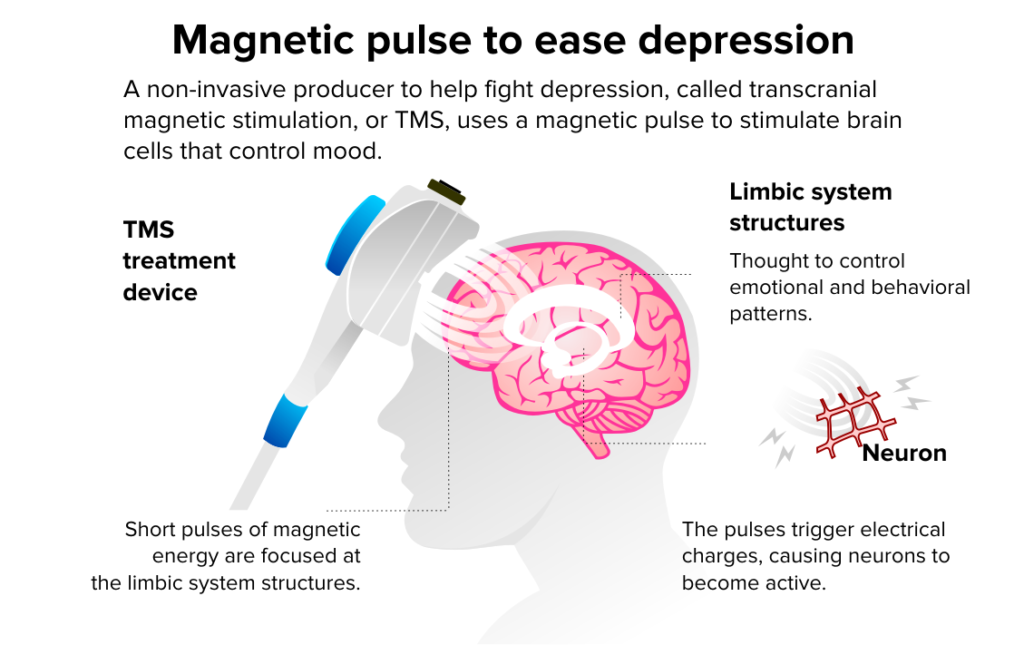Introduction: Revolutionizing Mental Health Care
In the realm of mental health treatment, Transcranial Magnetic Stimulation (TMS) therapy stands as a beacon of hope, offering a revolutionary alternative to conventional treatments. As we delve deeper into understanding the nuances of TMS therapy, it becomes evident that its advantages extend far beyond what traditional methods can offer.
Understanding TMS Therapy
What is TMS Therapy?
Transcranial Magnetic Stimulation (TMS) therapy involves the use of magnetic fields to stimulate nerve cells in the brain, primarily targeting areas associated with mood regulation. Unlike medications or electroconvulsive therapy (ECT), TMS therapy is non-invasive and does not require anesthesia.
How Does TMS Therapy Work?
During a TMS session, a coil is placed against the scalp, delivering focused magnetic pulses to specific regions of the brain. These pulses stimulate nerve cells, leading to changes in brain activity that can alleviate symptoms of depression, anxiety, and other mental health disorders.
Advantages of TMS Therapy Over Conventional Treatments
1. Non-Invasive Nature
One of the most significant advantages of TMS therapy is its non-invasive approach. Unlike conventional treatments such as medication or ECT, TMS therapy does not require surgery or anesthesia. This makes it a safer and more comfortable option for patients, eliminating the risks associated with invasive procedures.
2. Targeted Treatment
TMS therapy offers targeted treatment by precisely stimulating specific areas of the brain associated with mood regulation. This targeted approach minimizes side effects and maximizes efficacy, allowing for personalized treatment plans tailored to each patient’s needs.
3. Minimal Side Effects
Compared to medications that often come with a range of side effects, TMS therapy is associated with minimal adverse reactions. The most common side effect reported by patients is mild discomfort or headache during or after treatment, which typically subsides quickly.
4. Enhanced Effectiveness
Numerous studies have demonstrated the effectiveness of TMS therapy in treating various mental health disorders, including depression, anxiety, and obsessive-compulsive disorder (OCD). Unlike medications, which may take weeks to produce noticeable effects, many patients experience improvement in symptoms after just a few sessions of TMS therapy.
5. Long-Term Relief
One of the most compelling advantages of TMS therapy is its potential for long-term relief. While medications often require continuous use to maintain effectiveness, TMS therapy can lead to lasting improvements even after treatment has ended. This offers hope for individuals seeking a sustainable solution to their mental health challenges.
Conclusion: Embracing a Brighter Future with TMS Therapy
In conclusion, the advantages of Transcranial Magnetic Stimulation (TMS) therapy over conventional treatments are undeniable. Its non-invasive nature, targeted approach, minimal side effects, enhanced effectiveness, and potential for long-term relief make it a game-changer in the field of mental health care. As we continue to unlock the full potential of TMS therapy, we pave the way for a brighter future for individuals battling mental health disorder


